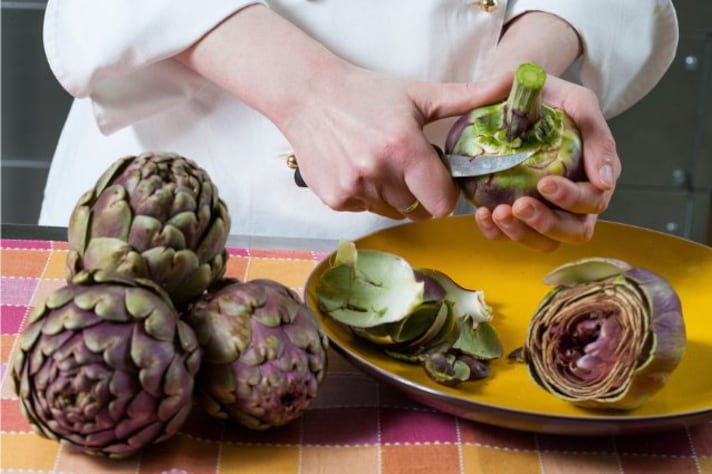Why You Should Never Eat the Hairy Part of an Artichoke
Artichokes are nutritious and flavorful but require caution: avoid the inedible, fibrous "choke" or hairy part to prevent choking and digestive discomfort. Instead, enjoy the tender heart and inner leaves, rich in nutrients and taste, for a safe and delightful culinary experience.

Artichokes, with their complex structure and unique flavor, are a testament to the idea that good things come to those who wait. Preparing and enjoying an artichoke requires a bit of effort, from peeling away its tough outer leaves to cooking it to perfection. While artichokes offer a delicious and nutritious option for meals or as an ingredient in various dishes, there's a crucial part of this thistle-like vegetable that should never make its way to your plate: the hairy part, also known as the choke.
Why the Hairy Part Is Off Limits
Contrary to some beliefs, the hairy part of an artichoke is not poisonous. However, it is inedible for several reasons that concern both health and enjoyment. First and foremost, the texture of the choke is unpleasant. Its fibrous, hair-like strands are tough and can get stuck in your throat, posing a choking hazard, especially to children and the elderly. Additionally, the choke doesn't break down easily during digestion. Eating it can lead to gastrointestinal discomfort, including bloating and indigestion. It's tough on the digestive system and offers no nutritional value or flavor to justify the risk it presents.

The Edible Treasures of an Artichoke
The heart of the artichoke, found beneath the choke, is widely celebrated for its tender texture and rich, slightly nutty flavor. It's a versatile ingredient that shines in a variety of dishes, from dips to pasta. The leaves also offer a culinary treat. While the outer leaves are tougher and mostly used for their flavor when boiling the artichoke, the inner leaves become tender and are delicious when steamed or grilled. The edible part of the leaves is the base, which can be dipped in butter or aioli and then the fleshy part is scraped off with the teeth.
Artichokes are a treasure trove of nutrients, including fiber, vitamins C and K, folate, magnesium, and antioxidants, making them a worthy addition to any diet. By focusing on the heart and the tender inner leaves, you can enjoy the best parts of the artichoke without any worries.
;Resize,width=767;)

;Resize,width=712;)
;Resize,width=712;)
